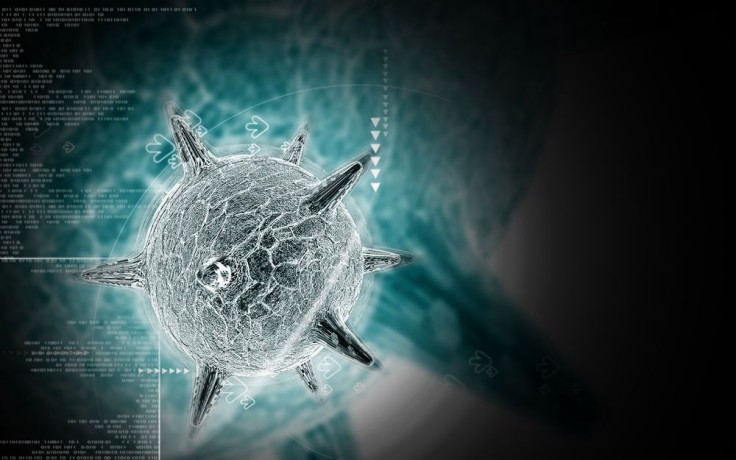Herpes Treatment Targets Cells, Not Virus For Less Outbreaks And Near Zero Chance Of Drug Resistance

It’s time we start talking about herpes, both on the mouth and on other, much more sensitive body parts. According to the Centers for Disease Control and Prevention, herpes (HSV-1 or HSV-2) is the most common sexually transmitted disease. Around 90 percent of Americans carry the HSV-1 cold sore virus and around one in six Americans aged 14 to 49 have genital herpes, which is commonly HSV-2. Unfortunately, there is no cure or vaccine against the virus, but a team of researchers are working on perhaps the next best thing: A treatment that can suppress outbreaks and prevent the virus’s spread.
Reduces Reoccurrence And Risk Of Transmission
As far as viruses go, herpes is relatively harmless. It may cause a slight fever, swollen lymph nodes, body aches, and painful sores, but in many cases the infected individual will experience next to no symptoms. Often, when it comes to herpes, the social stigma is worse than the physical side effects. Nevertheless, even though the herpes virus is incredibly widespread, there are currently few treatment options, and those that do exist are largely unpredictable.
A recent study funded by the National Institute of Allergy and Infectious Disease has developed a novel treatment approach for persistent viral infections, specifically herpes. According to a press release, the team used animal models with HSV infection, and gave them an already existing drug, tranylcypromine, to block the activity of a host protein cell called LSD1.
Results of the animal trials showed that blocking this specific protein cell resulted in a reduction of HSV shedding, and lessened the frequency of outbreaks. The researchers are also confident that similar results could be found with both HSV-1 and HSV-2, and that it would work no matter how long the host has been infected.
“This particular study was done by treating the animals at different times depending on the animal model and the experimental design,” lead researcher Dr. Thomas Kristie told Medical Daily in an email. “However, for an initial infection, it would be best to treat as soon as possible to prevent the virus from spreading and establishing latent pools of virus in the sensory neurons. In contrast, treatment to prevent 'reactivation and recurrence', could done at any time."
Minimizes Threat Of Viral Resistance
With a herpes infection, the virus enters a latent state in the sensory nerve cells. From here, the virus will periodically reactivate, and it’s then that symptoms may occur and/or the virus will be transmitted. Current treatment options target the viral proteins, but are largely ineffective at controlling both the virus’ shedding and reactivation. What set the tranylcypromine apart is its ability to block LSD1 activity. According to Kristie, by targeting a cell, rather than a virus, the threat of the virus evolving a resistance to the treatment is minimized.
“The rise of drug resistant viruses appears to be more prevalent in cases of recurrent herpetic keratitis and in immunosuppressed individuals,” Kristie said. “In contrast to using pharmaceuticals that target the viral DNA replication machinery, this epigenetic approach inhibits a cellular enzyme that the virus requires to initiate infection or reactivation. Since it is not a viral encoded enzyme, the potential for the development of drug-resistant virus strains is negligible.”
As of now the treatment is in its earliest stages of testing, but Kristie ensured Medical Daily that additional studies to further test this approach are expected. This would not only further test the effectiveness of this approach but also see if the results could be strengthened by combining the drug with other pharmaceuticals.
Herpes treatment is not the only current use for LSD1-specific inhibitors such as tranylcypromine. At the moment, drugs of this nature are being tested for the treatment of various cancers. “This may ultimately facilitate the required trials,” Kristie said.
Source: JM Hill, et al. Inhibition of LSD1 reduces herpesvirus infection, shedding, and recurrence by promoting epigenetic suppression of viral genomes. Science Translational Medicine. 2014.
Correction: This article originally misquoted Dr. Thomas Kristie and left out a portion of his direct quote. The correct entire quotation is “In contrast, treatment to prevent 'reactivation and recurrence', could done at any time."
Published by Medicaldaily.com



























